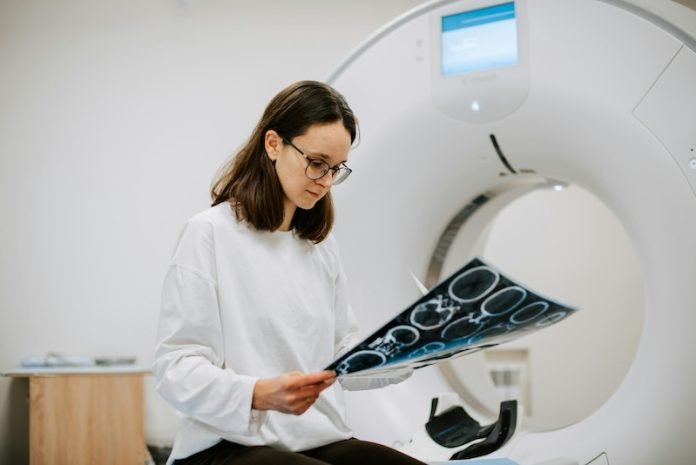
When we think about high blood pressure, also known as hypertension, we often link it to heart disease, stroke, and kidney problems.
Yet, recent studies suggest that the reach of hypertension may extend further than we previously thought, hinting at a possible connection with cancer risk.
This review aims to shed light on this complex relationship, presenting research findings in a straightforward manner that everyone can understand.
High blood pressure is a common condition where the force of blood against your artery walls is high enough that it may eventually cause health problems, including heart disease.
It’s a condition that creeps up silently, often going unnoticed because it rarely shows symptoms until significant damage is done.
Worldwide, millions of adults live with this condition, many unknowingly, making it a global health concern.
The inquiry into the relationship between hypertension and cancer is relatively new but growing rapidly. The reason behind this interest is the observation that high blood pressure seems to share several pathways that could potentially lead to cancer development.
These include inflammation, oxidative stress, and hormonal imbalances, all of which play roles in both conditions.
Research evidence has started to build a picture, although it’s still emerging and not entirely clear-cut. Some studies have found links between hypertension and an increased risk of certain types of cancer, such as kidney, breast, and colorectal cancer.
For instance, the nature of high blood pressure, which strains the body’s blood vessels, might also affect the way cells grow and divide, potentially leading to cancerous changes.
However, it’s important to note that these studies don’t necessarily prove that hypertension causes cancer directly.
Instead, they suggest that having high blood pressure could be one of the factors that increase the overall risk of developing some cancers.
One of the key challenges in understanding the hypertension-cancer link is distinguishing the direct effects of high blood pressure from the impacts of medications used to treat it, as well as other lifestyle factors.
People with hypertension often have other conditions like obesity and diabetes, and they might lead lifestyles that contribute to both their blood pressure and cancer risk (such as smoking, lack of exercise, and unhealthy eating habits). Disentangling these various elements is complex but crucial for getting a clear picture.
Despite the complexities, the potential link between high blood pressure and cancer highlights the importance of managing blood pressure through lifestyle changes and, when necessary, medication.
Regular exercise, a balanced diet, maintaining a healthy weight, and avoiding tobacco and excessive alcohol can not only reduce blood pressure but also lower the risk of many types of cancer.
Moreover, the ongoing research into the connection between hypertension and cancer serves as a reminder of how interconnected our body systems are. What affects one part of our body can have ramifications for our overall health in ways we might not expect.
In closing, while the bridge between high blood pressure and cancer risk is still under construction, the emerging evidence suggests we should pay attention to our blood pressure not just for the well-known risks but also for the potential links to cancer.
It underscores the value of a holistic approach to health, where managing one condition can have positive ripple effects across our entire wellbeing.
As research continues to unfold, one thing remains clear: taking steps to maintain healthy blood pressure is a win-win for our heart and possibly for reducing our cancer risk too.
If you care about high blood pressure, please read studies that early time-restricted eating could help improve blood pressure, and natural coconut sugar could help reduce blood pressure and artery stiffness.
For more information about blood pressure, please see recent studies about added sugar in your diet linked to higher blood pressure, and results showing vitamin D could improve blood pressure in people with diabetes.
Copyright © 2024 Knowridge Science Report. All rights reserved.



